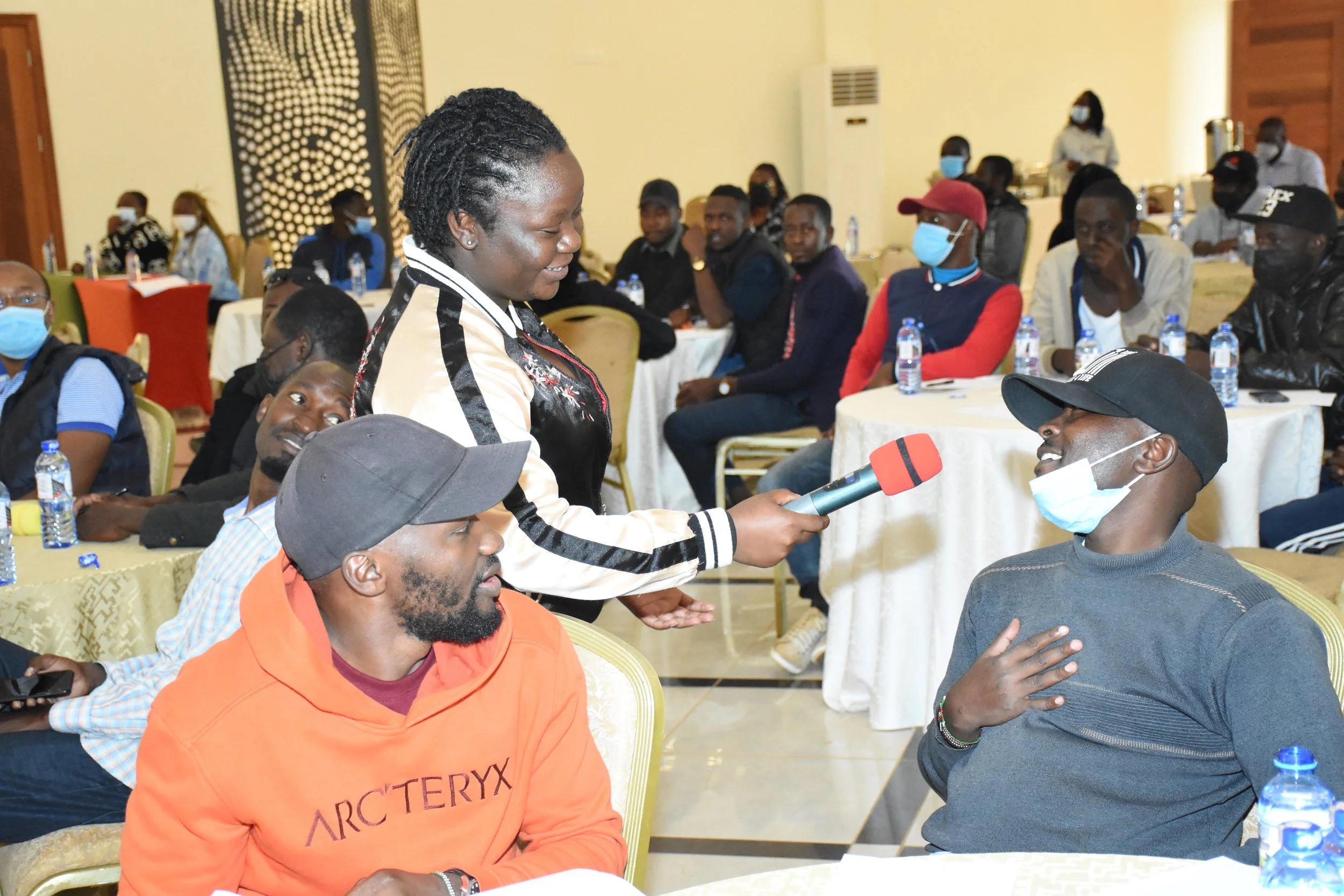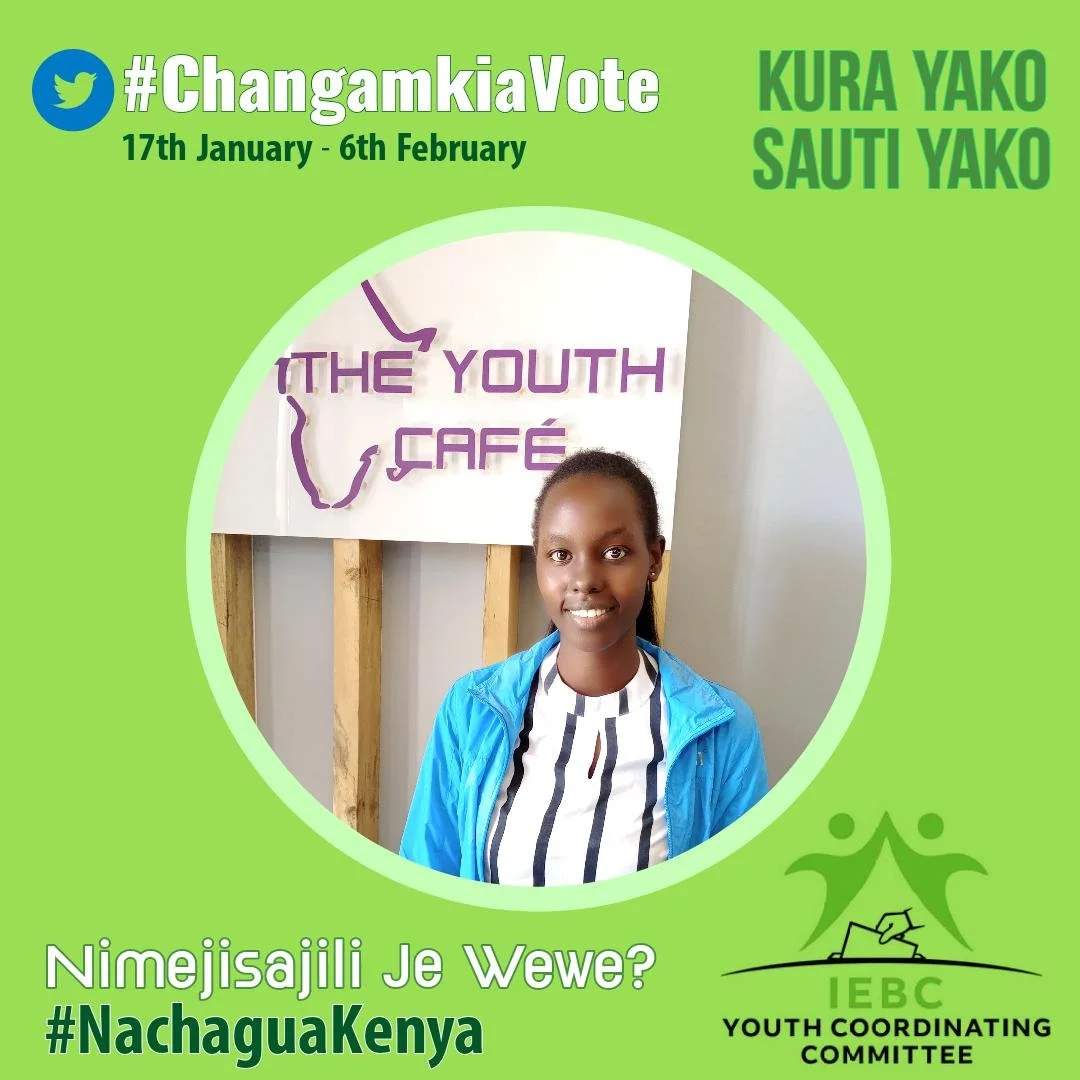The Youth Café trains the youth on civic education driven by result-oriented, evidence-based performance, which informs Our Theory of Change: A Pathway for Action, Sustainability, Results, Learning, and Adoption. These changes include institutional changes, service systems, community norms, partnerships, public will, policies, regulations, service practices, business practices, and issue visibility.
How Can We Get More Young People To Register As Voters.
Acknowledging the dire need for increased youth participation in the electoral process, The Youth Café has been working on ways to get more young people to register as voters. Research by the Office of the United Nations High Commissioner for Human Rights (OHCHR), shows that the youth could be largely categorized in three distinct demographics, classified according to age; with the first demographic being young people aged between 18-24 years, then 25-29 years and 30-35 years. Each of these key demographics will require a different approach to get them to register as voters.
The Youth Café Discussions With The Chief Justice On Social Transformation Through Access To Justice.
In commemoration of the International Day of Democracy, a section of the Civil Societies Organizations, The International Commission of Jurists, International Justice Mission Kenya, Kenya Human Rights Commission, Amnesty International Kenya, Centre of Rights Education and Awareness, Transparency International- Kenya, and The Youth Café held a virtual meeting with the Chief Justice, the president of the Supreme Court, honorable Lady Justice Martha Koome, On September 17, 2021, to deliberate on collaborations and contributions towards the implementation of the Chief Justice’s vision of social transformation through access to justice.
The Youth Café Mandela Washington Fellowship Alumnus Takes Part In The U.S. Department Of State’s Summit For Democracy.
The Youth Cafés Executive Director, Mr. Willice Onyango, as a Kenyan youth representative, attended the Youth Town Hall, moderated by Ambassador Linda Thomas-Greenfield. Mr. Willice asked his question as follows; Today, we find many young people want to engage in politics but are disheartened by the negative image projected by the current political elite and their apparent inability to tackle multiple crises. What do you think about nontraditional paths to political leadership, and how effective are non-formal education approaches in developing democratic attitudes particularly among youth?
Lessons From Deliberative Democracy In Africa
Citizen participation is at the heart of democracy. Around the world, a deliberative wave has been growing as innovative ways of involving citizens in policy-making have gained traction with governments and citizens. And Africa has not been left behind: From deliberative participatory budgeting in Kenya, and addressing corruption in Malawi, to risk management in flood prone areas in Uganda, deliberative processes are certainly refreshing democracy in Africa. This piece has been jointly published by The Youth Café and Westminster Foundation for Democracy.






